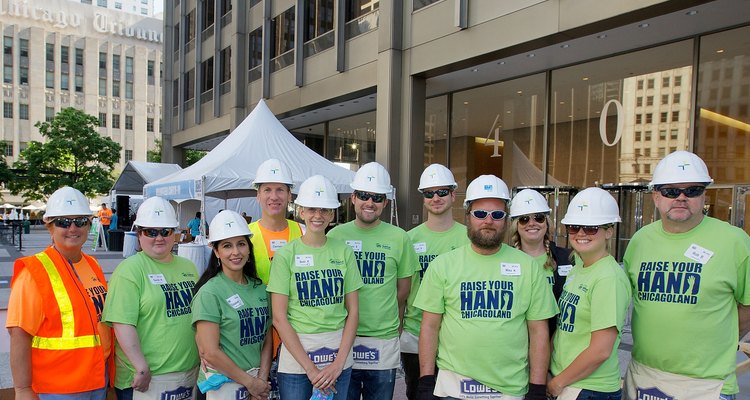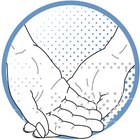
Jeff Schear/Getty Images Entertainment/Getty Images
It may seem on the surface that there couldn't be a downside to volunteer work. After all, aren't people supposed to give back a little, help others in need and otherwise engage in selfless pursuits? While volunteering is an admirable activity, it's worth pondering some of the potential pitfalls of volunteer work before you dive in. The better you understand the risks and rewards of volunteer work, the better decision you can make for you and your schedule.
Pro: It's Rewarding
By definition, volunteer work is unpaid, so the rewards you reap will be more emotional and perhaps spiritual rather than financial. The non-profit Botanic Gardens Conservation International, which relies on volunteers throughout the world, suggests the advantages of volunteering include "[the] opportunity to give back to society and feel useful," "[to] fill in a gap in your personal life" and "intellectual stimulation and growth."
Con: Time commitment
Once you begin to volunteer and organizers of that particular activity or program see that you're a valuable asset, you make be asked or encouraged to do more. This can lead to scheduling problems and leave less time for school, family, work and other obligations. It's important to know at the outset what the expectations are of your volunteer work and to make clear to organizers just how much time you can devote to the cause. Setting boundaries is a necessary evil in the volunteer world.
Pro: Health improvement
A number of research studies have shown that volunteering, particularly by older adults, provides health benefits. For example, one study published in the February 2009 "Journal of Gerontology" notes that older women who volunteered in elementary school classrooms were not just more active than their counterparts who did not volunteer, but that activity boosted their metabolism to where they were burning twice as many calories. Physical activity and a positive outlook can also help reduce blood pressure, other studies have shown.
Con: Emotional involvement
Volunteering to clean up a park, help in a library or build a house for Habitat for Humanity can be great ways to stay busy and contribute in a positive way to your community, without much of a risk of emotional attachment to those you are helping. But if you volunteer to work with children, abandoned or injured animals, senior citizens, hospital patients or other people in need, you run the risk of involving yourself emotionally. That's not always a bad thing, but it can carry over into your family or work life and leave you sad or anxious about those you're trying to help.
Pro: Community service hours
For students who need community service hours to graduate high school or qualify for scholarships, volunteer work is a particularly important and necessary commitment of time. Some high schools even offer class credit for community service hours. Of course, community service can also be an option for some people who run afoul of the law as a means of avoiding jail time and/or heavy fines.
Con: Frustration
In its report on "Why People Volunteer," the Voluntary Action Directorate of Multiculturalism and Citizenship Canada cites several common turnoffs to volunteering, such as poor organization, a lack of training and assignments that don't fit the volunteers' interests or skills. But another key problem is that volunteers can become so committed and involved in their particular cause, they can easily become frustrated that others don't share their passion. The report states, "Many volunteers care a lot about the work they do and it bothers them that society doesn't place enough value on it."
Pro: Personal Growth
The "Why People Volunteer" report, which polled numerous volunteers of all ages, found that one of the overwhelming responses from those surveyed was that volunteer work revealed interests and skills that had never been realized by the volunteers. The report states, "Among the major rewards and incentives of volunteering appears to be the opportunity for personal growth... Participants mentioned being pleasantly surprised by discovering they are good at doing unexpected things. There was talk of growing self-esteem and confidence with each new challenge tackled and skill learned. Others found that life developed more intensity, more colour, as they were exposed to new experiences that would not ordinarily have come their way."
Related Articles

How to Deal With Being Disowned

What Are the Rewards of Helping Others?

Charitable Organizations That Will Help ...

Advantages & Disadvantages of ...

Programs to Take Care of a Disabled ...

Similarities and Differences Between ...

The Disadvantages of Poor Time ...

Why Is Family More Important Than Money?

The Effects of Eating Breakfast on High ...

What Are the Benefits of Outdoor ...

Boot Camps for Bad Children

Different Kinds of Social Traps

List of Volunteer Ideas for a ...

Personal Characteristics of an Explorer

Activities for Homebound Elderly

Types of Extrinsic Motivation

How to Find Meaningful Volunteer ...

What Is the Definition of Companionship?

Factors That Affect People's Leisure ...

What Are Independent Living Skills?
References
Writer Bio
James Roland is the editor of a monthly health publication that has approximately 75,000 subscribers in the United States and Canada. Previously, he worked as a newspaper reporter and editor, covering issues ranging from the environment and government to family matters and education. He earned a bachelor's degree in journalism from the University of Oregon.
Photo Credits
Jeff Schear/Getty Images Entertainment/Getty Images